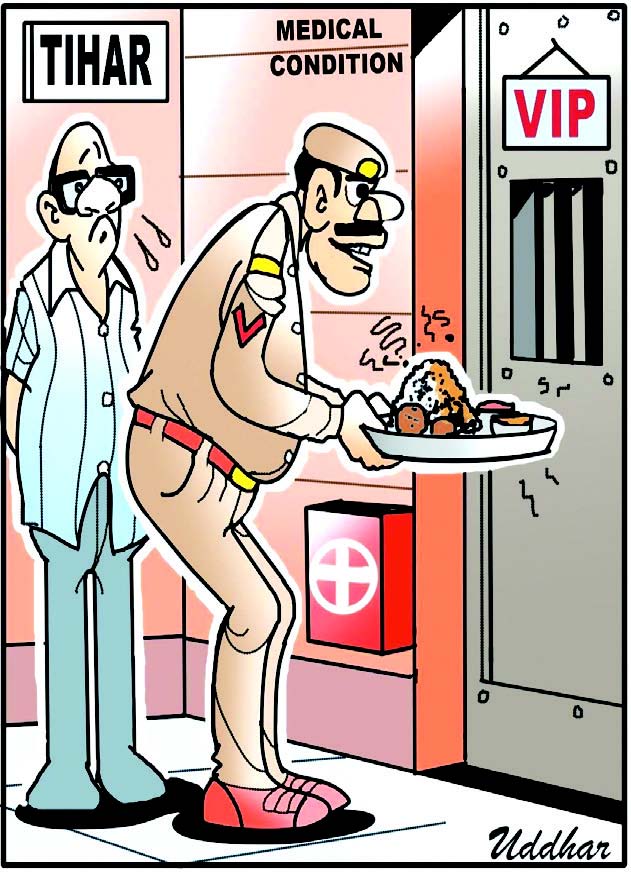
Better equipped to deal with issues
Many Public Information Officers are of the misconception and very wrong premise that they can delay for 30 days furnishing of information sought under the Right to Information Act. Section 7 of the RTI Act mandates that the Public Information Officer on receipt of a request shall, as expeditiously as possible, and in any case within thirty days of the receipt of the request shall provide the information.
So the intent of the law was to furnish information available expeditiously. That outer limit of 30 days is if information has to be sourced from other departments or if it is voluminous and has to be collated. So every Public Information Officer trying to drag on till the 30th day to comply with the mandatory duty is acting in breach of law and the very intent of the RTI Act which was enacted to ensure transparency and accountability in the functioning of any department. The RTI Act has been hailed as the hallmark of our democracy. The Act aims at making the government transparent and more accountable.
The effective use of it would, in the long run, curbs corruption. It has become a powerful tool in exposing corruption at top places in the government. The basic object of the Act is to empower the citizens, promote transparency and accountability in the working of the Government, to contain corruption, and make our democracy work for the people in a real sense.
It goes without saying that an informed citizen is better equipped to deal with issues and play a role in the affairs of the state and country.
Aires Rodrigues, Ribandar
Disrespecting the dead
It is sad to hear the opposition of the locals to the final rites of the Covid patients. The two dead were not the only ones who will die of this disease, God forbid many will, but the MLA and people opposing their own village native's cremation shows how much inhuman we are.
Now that the Goa government themselves has given up the fight and the public are told to live with the diseases it is important that the govt come up with a proper plan following the central guidelines to give a decent burial to the Covid dead.
The central government has laid down various guidelines to the health workers from the time of transporting the body from the morgue to the place of cremation, the body should be disinfected with 1 per cent Sodium Hypochlorite and placed in a body bag before handing over to the relatives.
The government has to name a designated electric crematorium for this purpose as the ashes of the dead becomes virus free this could be the only solution instead of countering oppositions and disrespecting the dead.
Clarence Alvares, Sangolda
Indianised Chinese food
Chinese food is a popular variety of food served in hotels and restaurants. This tasty food is served in starred hotels and is also available as a street-food. However there is now a public outcry calling for a total ban on all Chinese products in the country due the face-off between the Indian and Chinese troops which led to twenty Indian soldiers being martyred. There is also a call from certain politicians to ban Chinese food. However besides the name, Chinese food has very little to do with Chinese cuisine. A study has shown that the Chinese food served in India is intrinsically Indianised Chinese food. Restaurants mostly use Indian spices, flavours, and materials to prepare this food, in which the main flavours are spicy, and pungent. There are so-called Chinese foods available in India which even the Chinese may have not tasted. They include Chilli Chicken, Chicken Manchurian, Chowmein, Spring-rolls, etc. Many Indians from the North Eastern states have been working in restaurants across the country dishing out Chinese food. Hence it would be improper for people not to enjoy Chinese food in restaurants as a mark of protest against that country. Probably the only thing Chinese food has in common with China is the name.
Adelmo Fernandes, Vasco
Mass promotions of Std IX and XI
The decision to mass promote the students from 9th and 11th to 10th and 12th respectively was a decision taken in a reckless and hasty manner.
Extending mass promotions during the pandemic crisis may have been viewed in best interest of these students. However, several people are of the opinion that the no fail policy till Std 8 has already had a detrimental effect on the formation of the youth and has created a class
of academic illiterates.
The students lack competitive spirit and don't give any importance to studies or exam, and also to school authority and teachers (this supported by parents in most cases). Is such a decision just and fair to the students who work hard throughout the year and pass through merit and sheer determination? It would be acceptable if the CM would consider mass promotion for students who have failed in 2 or 3 subjects and not for students who have failed in all subjects.
Would it be fair for these students who could not cope up in Std 9, to cope up with Std 10? Students may be happy with the prospect of getting a 'paper matriculation certificate', but in reality, are they actually getting educated? Where are we heading with our current education system? Just imagine such persons occupying positions in government and government offices. I suppose this decision is taken in the name of COVID-19 crises to favour someone who could not clear through merit.
It may have severe repercussions in the years to come. The students themselves may regret this at some point in future? Was there any thorough study, research and debate done on this by concerned authorities and the education department? Who will be accountable for it? Hope wisdom prevails.
Khiara Pinto do Rosario, Margao
